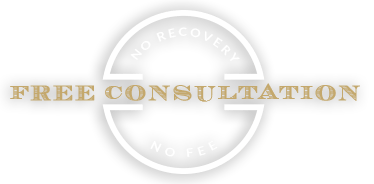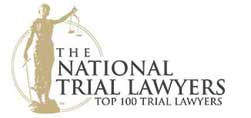10 Mistakes to Avoid When Negotiating a Car Accident Settlement
January 19, 2021

Many car accident cases are completed with a settlement. A settlement allows the injured person to collect the funds they need to recover without having to spend additional funds on court or legal fees. However, there are a few mistakes that you should avoid when negotiating an auto accident settlement:
1. Accepting the first offer: The first offer you receive may not be enough to cover the full amount of your damages. Avoid accepting the first offer you receive, especially if you have not had time to calculate the total of your car accident damages, including medical costs and property damages.
2. Admitting fault: It is never a good idea to admit fault, even if you believe that you were to blame. There are almost always other factors present that you may not be aware of. It is also possible for more than one person to be at fault when an accident occurs and by admitting blame, you may be considered to be more at fault than you were.
3. Going it alone: Navigating New Jersey’s courts can be confusing. Failing to file within the set timeline or letting the other legal team convince you into accepting the first offer can affect the amount you receive.
4. Downplaying your accident injuries: Downplaying your injuries can be a mistake, as some people don’t feel comfortable talking about their injuries. Additionally, it is possible for injuries to get worse over time, and you never know if you will need additional treatments, which can cost more than you initially receive.
5. Agreeing to talk to the other legal side: The other legal side is well-trained to use what you say against you. Saying certain things can lead to a lower settlement, or even your claim being denied. Never agree to allow them to record your conversations.
6. Lying to the adjuster: While you never want to admit blame or minimize your injuries, it is also important to never lie. If you are caught giving false information, it can ruin your credibility. Going forward, they will question your injuries and it can be harder to receive compensation for your damages.
7. Giving your personal information: While some information is necessary, like your name and address, you do not need to give your social security number or any other personal details.
8. Signing a medical release: It is important to complete your medical evaluations and procedures before agreeing to a release of medical information.
9. Giving too much information: Only provide the insurance adjuster with the information they need to file your claim. They don’t need to know about pre-existing conditions or any previous injuries you have.
10. Exaggerating: It’s necessary to be truthful. Never exaggerate or make misleading statements.
Many of these minor mistakes can have significant effects on your insurance claim. The insurance adjuster can offer you significantly less if they believe that you were partially to blame for the accident, or if your injuries are due to pre-existing conditions. It can be helpful to work with a personal injury lawyer to ensure your eligibility is not limited due to a minor mistake.
Contact a Mount Olive Personal Injury Lawyer to Discuss Your Car Accident Case in New Jersey
Did you or a loved one sustain serious injuries due to a car accident in New Jersey? Don’t let the medical bills pile up while you wait for the negligent party or their insurance company to do the right thing. Right now, you need an aggressive personal injury attorney on your side, fighting to get you the compensation you need, want, and deserve. The skilled attorneys at Hoyt & Hoyt, PC represent clients injured because of car accidents in Mount Olive, Roxbury, Montville, Edison, and throughout New Jersey. Call (973) 292-2299 or fill out our online contact form to schedule a consultation about your case. We have an office conveniently located at 67 East Park Place, 5th Floor, Morristown, NJ 07960, as well as an office in New Brunswick, New Jersey.
The articles on this blog are for informative purposes only and are no substitute for legal advice or an attorney-client relationship. If you are seeking legal advice, please contact our law firm directly.





